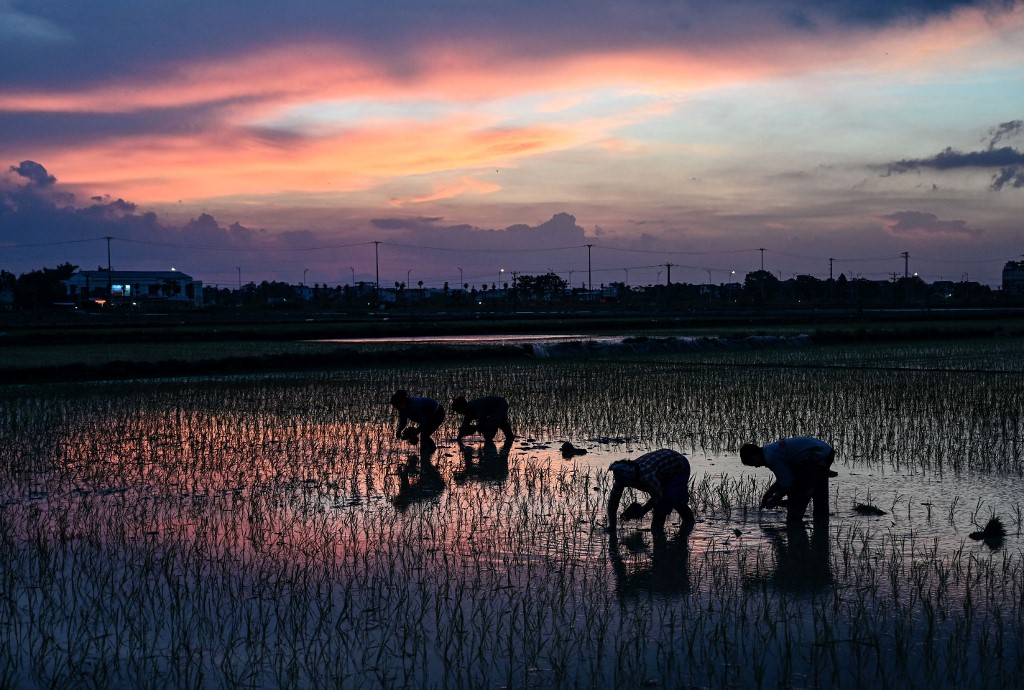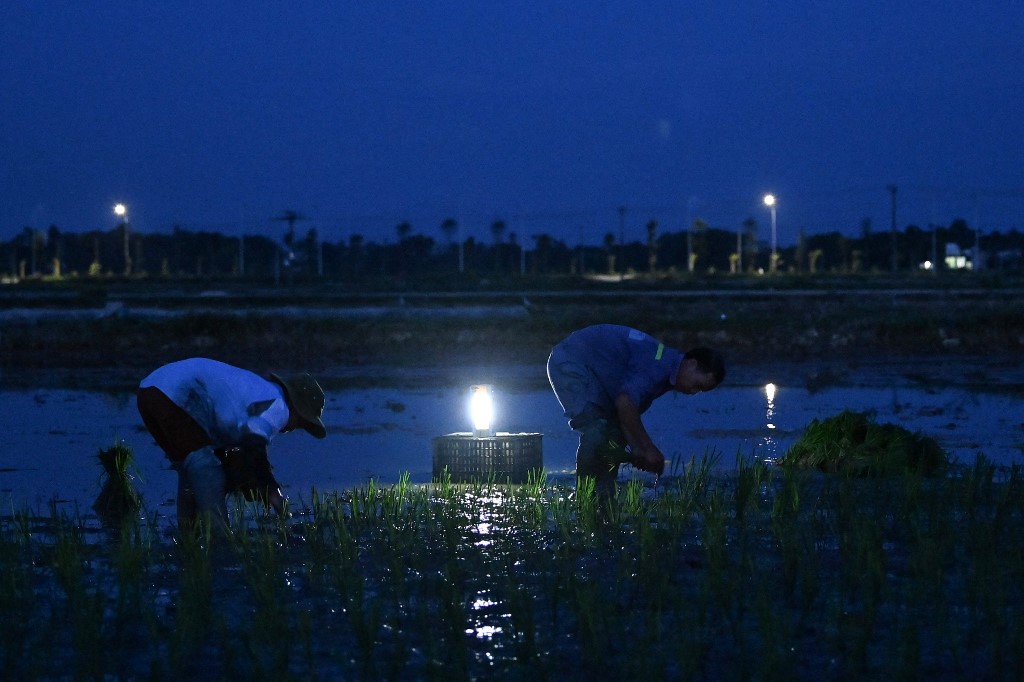Hanoi, Vietnam | AFP | Monday
It’s 3 am and pitch black when rice farmer Tran Thi Lan heads into water-logged fields on the outskirts of Hanoi to begin planting, desperate to finish before the day’s brutal heat arrives.
Planting in the dark has become a saviour for countless farmers in north and central Vietnam during increasingly hot summers as South and Southeast Asian nations battle record-high temperatures this year.
“It’s so hard to plant the rice when the strong sun is directly on my back and the warm water in the field splashes my face,” Lan, 47, told AFP.
Lan had managed a few days of daytime planting during a brief respite from the heat.
But she switched to night work as another heatwave descended on northern Vietnam in early July, with forecasters predicting a long stretch where daily temperatures would exceed 37 degrees Celsius (98 degrees Fahrenheit).
“With not enough light, the planting might not be on a straight line,” Lan acknowledges, as she quickly buries some roots into a patch of paddy illuminated by her head lamp.
Like Lan, 62-year-old farmer Nguyen Hung Phuong will now work from 4 pm to 9 pm and again from 3 am to 9 am.
“With extremely high temperatures, it’s very uncomfortable and exhausting to work during daytime, although of course I can see more clearly,” Phuong said.
Working at night made him “more productive and less distracted”, he said.
Night planting began a few years ago at Nguyen Thi Hanh’s farm.

“Our parents did not have head lamps. The weather was also not as hot,” 56-year-old Hanh said.
Night planting has its advantages for the rice, which Hahn said is sensitive to extremes in temperature.
“It’s in fact much better because the water is cooler, and more suitable for the young plant”, Hanh said.
Day or night, farmers such as Lan and Phuong can earn up to $40 a day, a large sum in a country where labourers in rural areas normally earn around $250 each month.
But the work is so tough that hardly anyone wants to do it, Lan said.
“Planting in the dark takes much more time compared to during the day,” she said.
“But we just need to keep going,” Lan said, worrying that, in a few years, no one would be left to do this work.
“The younger ones have all quit for less hard jobs.”
© Agence France-Presse






